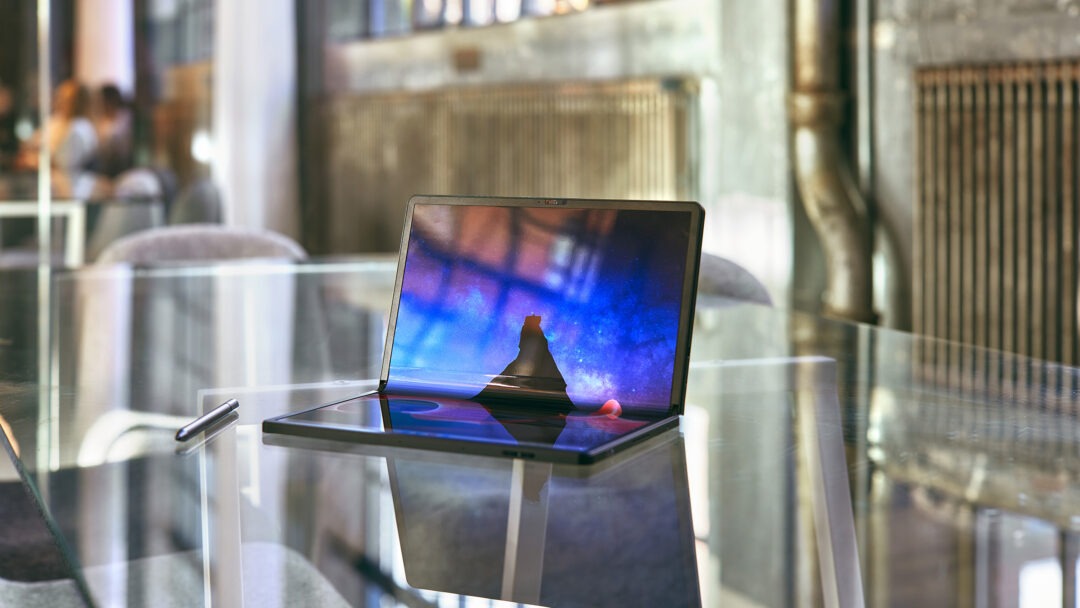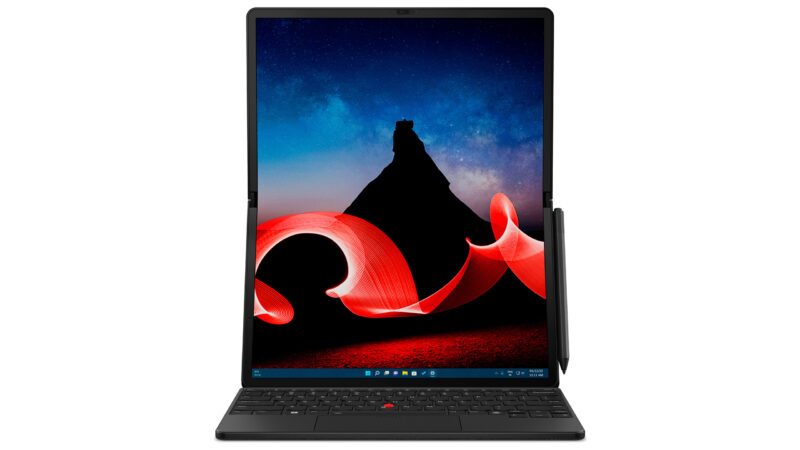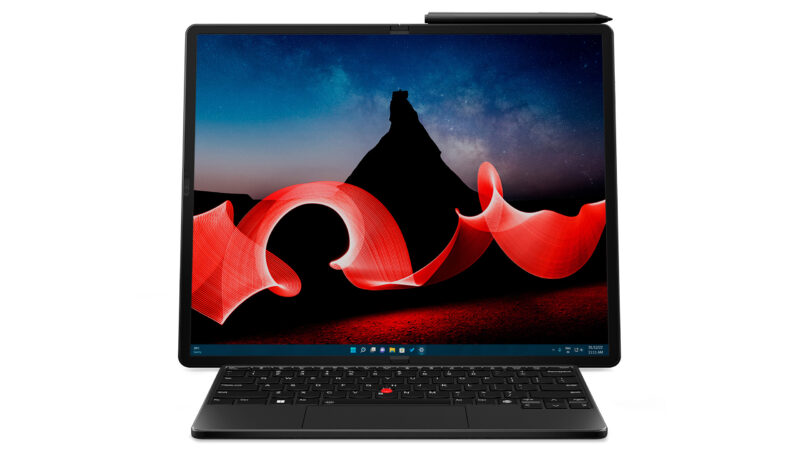Holy sh…, that’s awesome!
As a PC tester, I have lots of new computers visiting my desk all the time. And many of them represent the best that technology has to offer. But the truly exciting and innovative ideas are few and far between.
The Lenovo ThinkPad X1 Fold is one of those. It’s quite simply one of the sexiest laptops I’ve ever seen. And from Lenovo, which is otherwise known for its conservative style.
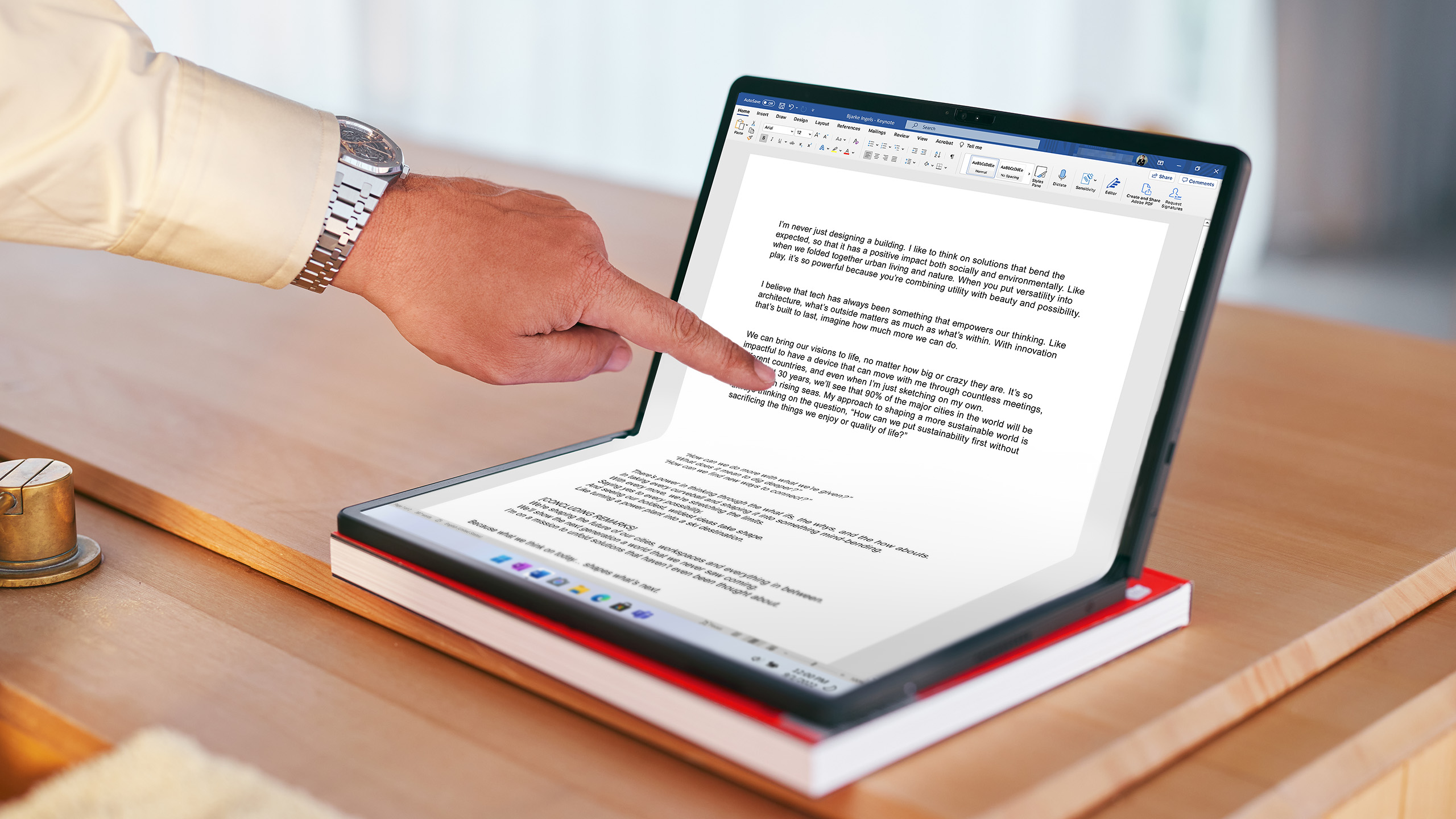
All laptops are foldable in the sense that they can be folded. But the ThinkPad X1 Fold is something else entirely. The entire device is one large touchscreen that folds in half. When folded, the computer looks like a Chinese paper notebook with its textured black carbon fibre surface. Which, in a way, it is. But infinitely more advanced – and a lot more expensive.
Opening the device reveals a 16-inch, almost square OLED screen. The screen can be fully unfolded or left half open like a regular laptop. In the latter case, an on-screen keyboard can be called up.
Stunning display
The display is sharp and colour-saturated as only OLED can be. And the fold seems reassuringly solid and perfectly smooth when unfolded.
If you need to write more than just short notes, you’ll probably want to use the included keyboard. It’s a five millimetre thick keyboard in a recognisable ThinkPad style – including the classic red TrackPoint in the middle. Although the keyboard is thin, the keys are relatively comfortable to type on. Unfortunately, the relatively small touchpad lacks haptic feedback. This makes it difficult to know if you’ve clicked or not; especially since the delay between click and on-screen action is quite long.
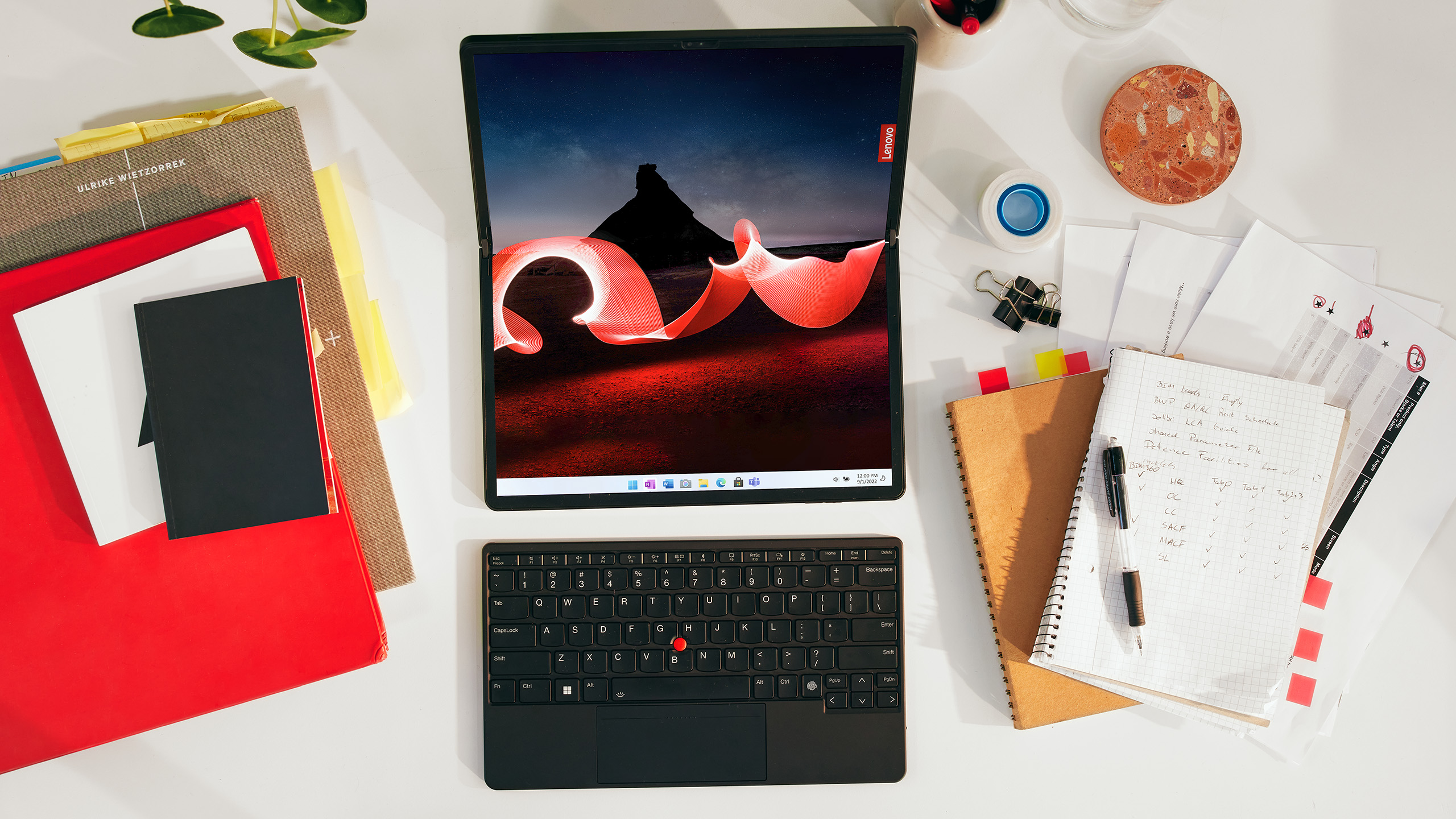
A monitor stand can be magnetically attached to the keyboard and locked at any angle. Unfortunately, the magnets are weak, so the keyboard often comes loose while trying to adjust the angle.
The screen can be positioned vertically or horizontally, and the experience of working on the computer when fully extended as a laptop is simply marvellous. Which is partly an optical illusion caused by the fact that the screen area is twice the size of the keyboard. More cynically, the screen on the ThinkPad X1 Fold is no bigger than on other large laptops. And the 2,560 x 2,040 pixel resolution is also quite mundane, despite the screen aspect being unusual.
The selection of ports is summarised quickly: there are only three USB-C ports. Nothing else. And there are no HDMI or audio adapters in the box. For the price of a fairly decent used family car, you’d expect more!
The PC of the future – with last year’s hardware
You can’t fault the design of the Lenovo ThinkPad X1 Fold. It’s groundbreaking. The hardware beneath the surface isn’t quite as innovative.
Dell XPS 13 2-in-1 could have been the perfect hybrid machine if Dell could only address two major challenges.
The processor is an Intel Core i7-12650U. Notice the first two digits of the model number: it’s a 12th generation processor. That’s what was all the rage two years ago. This means the number of cores (10) is smaller than what we see today. And while the competition (and Lenovo’s other machines) boast Intel Core Ultra processors with AI capabilities and especially Arc graphics, the X1 Fold has to make do with the old Iris Xe graphics.
It’s not the first time we’ve seen a computer with hardware several years out of date turn up in the office. The reason is often that the PR agency’s test machines have been in circulation for too long. However, that is not the case here. The machine is identical to those currently available in Lenovo’s online store. And Lenovo does not offer a model with newer hardware.
The ThinkPad X1 Fold tested had 32 gigabytes of RAM and 1 terabyte of SSD storage. That’s fine, although you could wish for more luxury in this price range.
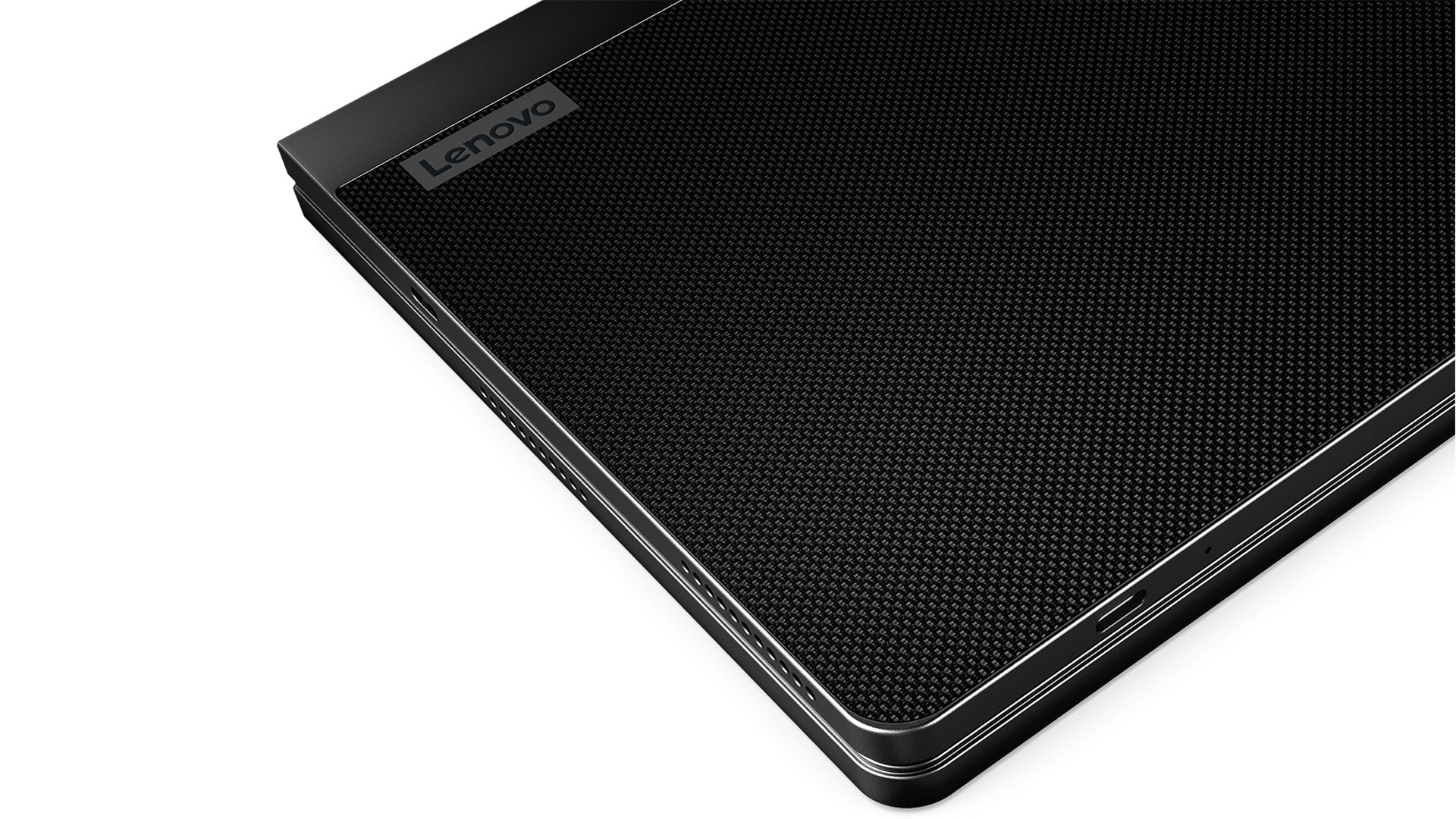
Benchmarks
The somewhat outdated hardware leaves its mark on the speed. All in all, the performance is poor.
The GeekBench 6 processor test ends with a result of 7,647 in multi-core and 2,273 in single-core. The PCMark 10 office programme simulation ends with a result of 4,898. In isolation, this is more than enough for normal office work, unless you’re doing video editing. But you can get more or less the same performance in an Acer Aspire Vero 15, which costs a fifth of the price!
The Acer Swift 5 looks and behaves like an executive toy. But it costs so little that most people can afford it.
The 12th generation processors from Intel have integrated Iris Xe graphics. Again, this is enough to run the Windows interface smoothly, but this year’s Ultra processors with Intel Arc graphics are about twice as fast for 3D graphics and also have (simple) ray tracing built in. This can be seen, for example, on the Asus Zenbook 14 OLED, which despite its sleek design still costs less than a third.
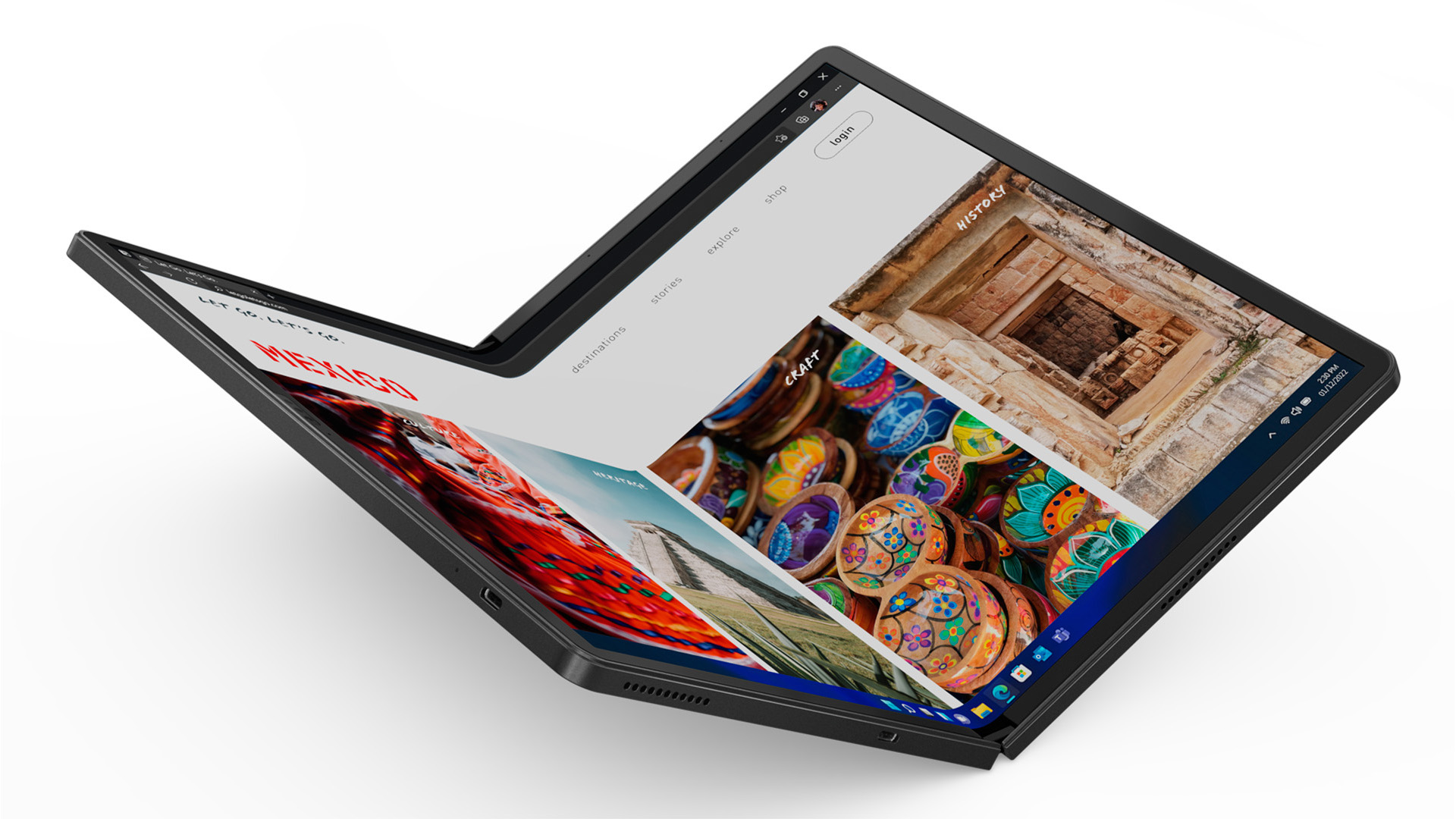
The large, colourful and relatively bright (HDR600) OLED display in the slim case is not a recipe for long battery life. Two hours was all the ThinkPad X1 Fold could manage with the office simulation. Presumably, the PC can barely make it through a day’s work on one charge. But most modern lightweight laptops have twice that battery life.
Conclusion
The moment we saw the Lenovo ThinkPad X1 Fold launched at IFA, we knew we had to test it. We’ve been waiting a long time for this to be possible. But to be honest, we expected the PC that finally showed up at the editorial office to be updated in line with hardware developments. This is not the case. The configuration of the X1 Fold on sale today is exactly the same as when it was unveiled in 2022!
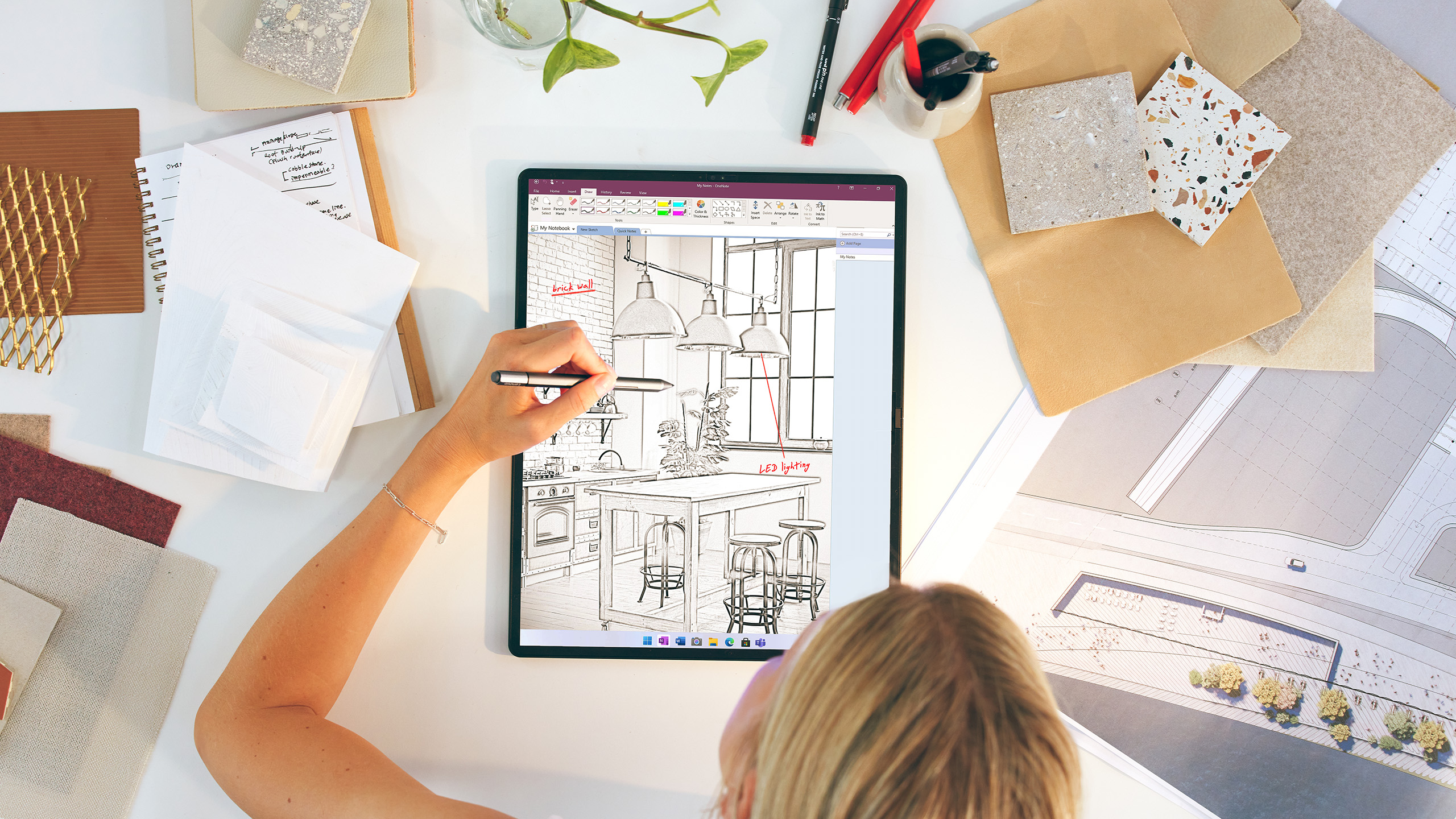
The result is a laptop that’s groundbreaking in design, but with the performance of a cheap school laptop. You can easily buy three great ultrabooks for the price of one X1 Fold. And each one will be twice as powerful!
Of course, it has to cost something to be cutting edge, and a 16-inch foldable OLED display is certainly expensive to manufacture. But the price in this case is so extreme that unless you have a very specific reason for wanting this particular model, and money means nothing to you, it’s not possible to find any reason to recommend this computer.

5540 €
Specifications
- Processor: 1.9 GHz (4.7 GHz turbo) Intel Core i7-1260U 10 cores (12 threads)
- Display: OLED 16″ (2,560 x 2,040 pixels), 60 Hz 100% DCI-P3 600 nit, touch
- Memory: 32 GB LPDDR5
- Storage: 1 TB SSD
- Graphics: Intel Iris Xe Graphics
- Operating system: Windows 11 Pro, 64 bit
- Connections: Wi-Fi 6E, Bluetooth 5.1, 2 x USB-C (w. Thunderbolt 4), 1 x USB-C 3.2, HD webcam
- Dimensions and weight (WxHxD): 34.6 x 0.9 x 27.6 cm / 1.28 kg
- Web: lenovo.com
Benchmarks
- Geekbench 6: 7.647 (multi-core), 2.273 (single-core), 11.321 (OpenCL)
- PCMark 10: 4.898
- 3DMark Speed Way: Not compatible
- 3DMark Port Royal: Not compatible
- 3DMark Solar Bay: Not compatible
- 3DMark Time Spy: 1.260
- 3DMark Fire Strike: 3.331
- 3DMark Wild Life Extreme: 2.951
- 3DMark Wild Life: 9.411
- 3DMark Night Raid: 10.970
- Cinebench R15: 98 fps / 1.239 cb
- Cinebench R23: 25.292 (multi-core) / 1.529 (single-core)
- Cinebench R24: 290 (multi-core) / 89 (single-core)
- HDTach: 1.941 MB/s
- 3DMark Storage Benchmark: 2.055
- Battery test: 1:59 hours
